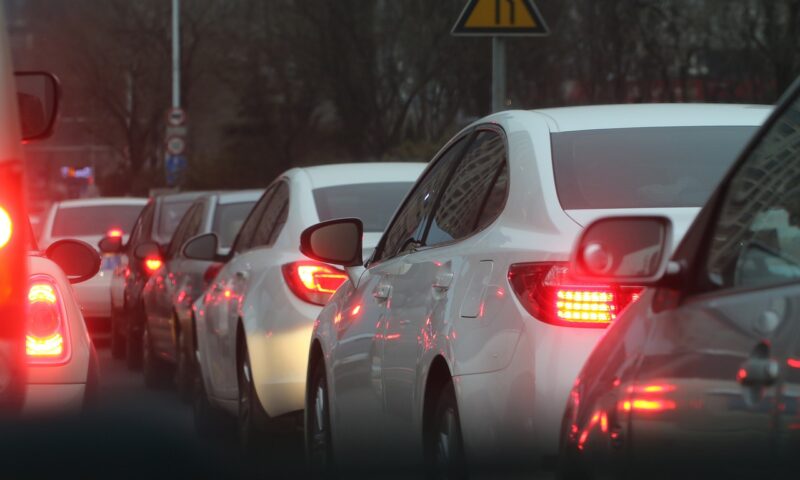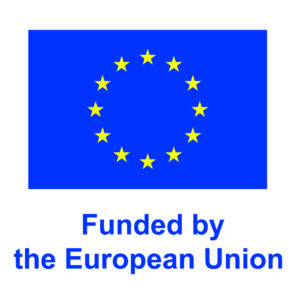This story was originally published in November 2023 by Voxeurop. Read part I here. It was produced with support from production grants from the European Excellence Exchange in Journalism project.
Industry game exposed: saving dirty cars, wasting public health
In 2018 the Commission created the Advisory Group on Vehicle Emission Standards (AGVES) including industry representatives, NGOs as well as consultants from the Consortium for Ultra Low Vehicle Emissions (CLOVE), consisting of academic, research and business experts. CLOVE was awarded over 2 million euro to verify the potential for additional pollutant reduction and to further the discussions within AGVES to develop a collaborative approach towards the Euro 7 standards.
Following public consultation, in October 2020, CLOVE recommended tighter tests to capture the emissions released in all real driving conditions and to lower limits for NOx (10mg/km) and other compounds based on the best environmental performances achieved by different models on the road. “According to our database, several large carmakers already produce vehicles which emit much less than the Euro 6 limits, meaning that emissions reduction below the Euro 6 are technically and economically possible,” said Zissis Samaras, CLOVE Coordinator.
However, the industry promptly fought back. On 20 November , the European Car Manufacturers Association (ACEA) sent a complaint letter to the Commission Vice-President for the Green Deal, Frans Timmermans, which described CLOVE recommendations “as an intention to severely limit, or even cancel, the future role of the internal combustion engine in the European market”.
On 27 November, the German Association of the Automotive Industry (VDA) backed ACEA’s move through sending a letter to the Director General for Internal Market policies (DG GROW) at the Commission, Kerstin Jorna, following their video call two days earlier. VDA reiterated its position against the idea to make cars “as clean as possible […] under almost all driving conditions”.
“The response from the industry was completely out of proportion,” said Felipe Rodríguez, Deputy Managing Director at ICCT Europe. “Instead of working with the Commission and CLOVE consortium to put forward something constructive, they triggered a media storm and reactions from Member States backing their cause, so that the process became very politicised from the outset.” According to confidential sources, CLOVE members were also put under pressure by carmakers, which are often lucrative customers that commission emissions performance tests from them.
As a result, in April 2021 CLOVE loosened both limits for all contaminants (20-30 mg/km for NOx) and the approval measurements. At first the industry seemed happy. “The EU Commission has accepted the limits of what is technically feasible and has said goodbye to unattainable goals,” said VDA President, Hildegard Müller.
The friendship between the industry and EU Commissioner Breton
However, the truce did not last long. Carmakers harshened their crusade, begging, the European Commissioner for the Internal Market, Thierry Breton, for help. The former French lobbyist became the industry’s best ally, as shown by confidential email exchanges obtained through FOI requests.
The first meeting was held on 19 May 19. “During the discussions Breton invited ACEA to send him the industry’s alternative Euro 7 proposal, so that the Commission could get input into its final proposal,” said a source from the car industry on condition of anonymity. Breton’s generous move towards the industry is confirmed in a letter that on 9 June was submitted by ACEA to Jorna (similar to the one addressed to Breton the day earlier).
The letter summarised the lobby platform’s public position requesting to keep the test conditions the same as in Euro 6 and slightly lower the emission values only for NOx, so that the industry could put its technical and financial efforts in the electrification needed to meet the CO2 targets, driving further air quality improvements. Jorna promptly sent a reply to ACEA: “Rest assured that we will analyse and consider them carefully in the course of work on the regulatory text”.
A month later, the Commission’s Regulatory Scrutiny Board rejected the impact assessment prepared by the Directorate General for Industry and Transport (DG GROW), outlining the Euro 7 policy options based on CLOVE inputs. The main invalidating argument was the missing analysis of the cumulative costs for carmakers and the air quality benefits expected from the transition from combustion to electrification, as suggested by ACEA.
Indeed, on 14 July, the Commission proposed the revised legislation requiring zero CO2 emissions for passenger cars and vans in 2035 (compared to those in 2021), with 15% and 50% intermediary targets by 2025 and 2030, forcing carmakers to progressively replace fossil fuel cars with EVs and bringing to an end combustion engines.
While DG GROW civil servants were busy revising their impact assessment, the industry and Breton continued their discussions behind- the-scene. “Lots of information was exchanged in the meantime between ACEA and the commission,” said our anonymous source. Following a new meeting on 26 October, ACEA sent a letter to Breton on 2 November saying “we are happy to follow-up on these issues and […] we trust that technical follow-up meetings will be quickly organised at the working level with your services for Euro 7” (recorded subsequent interactions include a meeting on 12 December, and another letter from ACEA to DG GROW on January 24 2022).
In January 2022, the revised Euro 7 impact assessment, taking into account the effects of electrification, was given the green light by the Regulatory Scrutiny Board. The Commission was finally entitled to present its long-due legislative proposal, initially planned for the end of 2021, but again Breton’s cabinet put it on hold. The new measures were announced for July 2023.
“ACEA kept telling the Commission that developing a new engine for Euro 7 and electrification at the same time would be too much effort to handle for the automotive industry, and would slow down electrification of the sector, as all focus would first go to reducing the emissions of combustion engines,” according to our industry source.
ACEA’s message was clearly heard by Breton and Frans Timmermans, the then EU Commissioner for the European Green Deal. The Commission further postponed the Euro 7 proposal, pending the adoption of the road transport decarbonisation plan that Timmermans was set to flaunt at the annual international climate summit COP27 in November to confirm the EU’s commitment against global warming.
“The rules on CO2 standards for cars and the proposal for a Euro 7 regulation are complementary,” said the Commission’s spokesperson. “The timing of the publication (i.e. of the Euro 7 proposal) allowed the Commission to take into account the final outcome of the inter-institutional negotiations on the CO2 standards for cars which were considered in the impact assessment, but without clarity about the outcome of the legislative process.” “I suspect that the unspoken deal was that, if ACEA supported the CO2 targets, then the Commission would presumably present a lighter Euro 7, as especially requested by some member states,” said our source.
The behind-the-scenes agreement
This mutual understanding was somehow implicitly sealed on 1st June 2022 during a meeting at ACEA headquarters between the association’s Board of Directors and Jorna with her team. Oliver Zipse, BMW CEO and then ACEA President, led the conversation. This meeting is not disclosed in the public register, in breach of the transparency rules, according to which “The Directors-General of the Commission shall make public information on all meetings held by them with organisations or self-employed individuals on issues relating to policy-making and implementation in the Union”.
A week later, DG GROW sent to ACEA a letter Voxeurop has seen, summarising the meeting outcome. It reads that “Concerning the green transition they (i.e. the industry representatives) fully support the -55% (i.e. of CO2) targets for 2030, but asked caution for 2035 (-100% of CO2) target”, that “Concerning Euro 7, they referred to ACEA proposal (i.e. the one already submitted to Breton in 2021)” and that Jorna “reassured them that the Commission proposal will set ambitious but feasible requirements”.
During the meeting “Acea did indeed refer to proposals for Euro 7, which had been sent to commissioner Breton,” an Acea spokesperson said.
It is worth noting that both Stellantis and Volvo Cars (distinct from VOLVO Group) left ACEA after the meeting due to their different disagreements with the association’s approach to Euro 7 and electrification.
At the end of June the Council adopted the CO2 targets and in late October reached an agreement with the Parliament, largely following the Commission’s proposal, with no interference from the industry.
A month later the Commission officially presented a Euro 7 proposal which did not follow the best policy option outlined in its own impact assessment. To meet ACEA demands, the text partially loosened the test conditions and the pollutant limits. In particular, NOx emissions for diesel vehicles were just aligned to those of petrol vehicles under Euro 6 (60mg/km).
A senior source inside DG GROW agreed that this behind-the-scenes deal paved the way for the further watering down of the bill by the 27 member states at the Council. Legislative proposals by the Commission have to be approved by national governments, and a weak initial proposal leaves less room for negotiations.
“The […] Euro 7 proposal is not the result of the requests from one stakeholder, but rather the fruit of a careful examination […] following a very wide consultation with all stakeholders,” told Voxeurop the spokesperson of DG GROW who confirmed the secret meeting occurred between Jorna and ACEA. “ACEA never had any deal with the Commission about the Euro 7,” a former lobbyist for the car industry in Brussels told Voxeurop.
NGOs were outraged by the Commission proposal on Euro 7. “The auto industry lobby has fiercely opposed Euro 7, using a variety of dirty tricks to influence decision makers and the Commission has caved into their demands,” said Krajinska.
However the industry was not satisfied yet. “Unfortunately, the environmental benefit of the Commission’s proposal is very limited, whereas it heavily increases the cost of vehicles,” said Zipse in the official reaction of ACEA, which, in February 2023; called for an even weaker version of the Euro 7.
At the same time, the German car industry group VDA’s position paper recommended delaying the enforcement dates, which EU lawmakers eventually agreed to do.
“Although being responsible for slowing down the Commission’s work, ACEA had the guts to say during the AGVES meetings that the Euro 7 standards came too late and carmakers would have a hard time complying with the requirements by the proposed time frame (2025 for cars and 2027 for heavy-duty vehicles),” said a Commission civil servant at DG GROW under condition of anonymity.
Polluting until the very end
Despite the promises made to the Commission, the industry’s subtle goal seemed to undermine both the transition to full electrification and the Euro 7 as a whole. “In all of its papers, the ACEA insists on the fact that the zero CO2 emissions strategy should be technology neutral,” said our anonymous industry source. “I believe that ACEA strategy was: ‘first, use the electrification argument to soften the Euro 7 and then try to remove the combustion engine ban set for 2035 by weakening it with eFuels [a hypothetical low carbon fuel for combustion engines, Note from the editor], which was backed by the German government after a lobby of the German VDA, and some German carmakers like Porsche and BMW.”
This is exactly what happened. Shortly before the vote at the Council which was due to formally endorse the agreement reached with Parliament on the CO2 targets, the then centre-right German government threatened to turn down the regulation to force the Commission to introduce a derogation in the EU cars approval norms, enabling the registration of vehicles running on carbon neutral eFuels after 2035. The deal between EU Commissioner Frans Timmermans and the federal minister for transport, Völker Wissing, extended de facto the sales of cars with combustion engines beyond that date.
“Carmakers successfully made the Commission believe that they would invest in increasing production of EVs if they weren’t obliged to invest too much to comply with stringent Euro 7 standards, but the reality might be different,” said our anonymous source. Indeed, the CO2 standards for the automotive sector include a revision clause allowing the Commission to assess the progress made towards 100% emission reduction in 2026 and potentially review the target schedule in the light of technological development.
“Should carmakers move too slowly with electromobility before the mid-targets, or if incentives to develop the charging infrastructure are too limited to expand capacity fast enough to power new cars, the industry will again start influencing the Commission to extend sales of new combustion vehicles beyond 2035”, Philippe Vangeel, Secretary-General of the European Association of Electromobility, told us.
This scenario comes through the industry official communications.
“Already today, a lack of charging and refuelling stations is severely hampering the market uptake of zero-emission vehicles,” stated ACEA Director General, Sigrid de Vries. “A significant ‘infrastructure gap’ will continue to limit CO2 reductions and the transition of our sector to climate neutrality.” The statement was made in reaction to the agreement reached between the European Parliament and the Council on the new mandatory deployment of alternative fuels infrastructure, setting targets for electric recharging and hydrogen refuelling infrastructure also for the road sector.
Regardless of the infrastructure progress achieved so far, electrification of road transport is moving at a slower pace in Europe than in the U.S. and China. Carmakers have not increased the proportion of EVs compared to hybrid cars [running both on electric and fuel, NftE] in Europe, remaining steady since 2015, according to the International Energy Agency outlook 2022 report which states that this “may reflect a corporate strategy among European automakers […] of offering plug-in hybrid cars (PHEVs) versions of many large and high-end car models to capitalise on their experience in developing conventional powertrains” – a necessary part of PHEVs.
The industry strategy is for a cost-free, completely ineffective Euro 7 to maximise their profits from outdated combustion engine technology,” said Krajinska. “This is at the same time as carmakers limit the production of zero emission EVs for the EU market as evidenced by stagnating EU EV sales and prioritise selling large, expensive EVs rather than small, affordable models.”
To comply with CO2 reduction targets, carmakers sell a large volume of EVs that they produce at low cost in China to European consumers, while continuing to operate their traditional factories to flood the roads with combustion engine vehicles.
Some automotive suppliers have even been blackmailed by carmakers threatening them to switch faster to electrification and stop buying emissions control components, should Euro 7 be too stringent and require significant technology upgrades, according to sector experts who talked to Voxeurop on condition of anonymity.
Paradoxically, given the cost-driven reasoning of the industry, the transition to zero emissions could have been faster, should a Euro 7 with stringent requirements raise the cost of cleaning up combustion engines.
“We planned small electric cars that would come in 2025 […] when we thought Euro 7 was an insurmountable hurdle that will accelerate electrification,” VW CEO Thomas Schäfer told the media at the Los Angeles motor show in November 2022, a few days before the presentation of the Commission proposal, as reported by Autocar.





